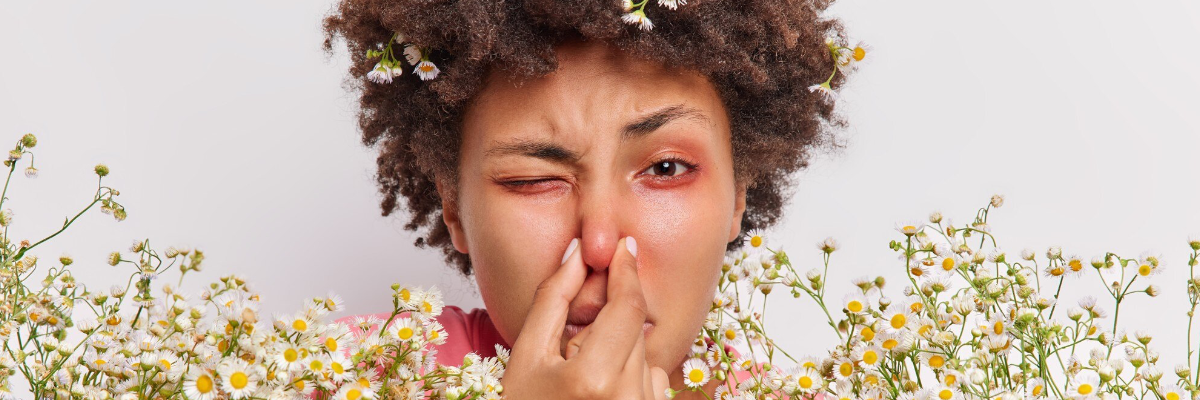The transition between seasons can be a welcome change, but for many individuals, it heralds the onset of seasonal allergies. This condition, known clinically as allergic rhinitis, is an immune system response to airborne allergens like pollen, resulting in a variety of disruptive symptoms. Achieving effective allergy relief begins with understanding the triggers and implementing consistent allergy prevention strategies. A structured approach to allergy treatment is fundamental to managing this condition and restoring your well-being throughout the year.
At Doral Health & Wellness, we are proud of our commitment to providing integrated, interdisciplinary health services to our community. Our expert physicians deliver trusted medical treatments and personalized guidance to help you manage allergy symptoms with confidence. We invite you to connect with our innovative medical facility for comprehensive and supportive care.
Identifying the Symptoms of Seasonal Allergies
When a person with allergies inhales an allergen, the immune system releases histamines and other chemicals. This chemical release is what causes the characteristic symptoms of an allergic reaction, which can range in severity from mild irritation to significant discomfort.
- Nasal and Sinus Symptoms – Persistent sneezing, a runny or stuffy nose, and sinus pressure are hallmark signs of allergic rhinitis.
- Eye Irritation – Allergic conjunctivitis is a frequent complaint, leading to red, itchy, watery, and swollen eyes.
- Throat and Ear Discomfort – An itchy sensation in the throat or on the roof of the mouth is common, as is a feeling of fullness in the ears due to congestion.
- General Fatigue – The body expends considerable energy during an allergic response, which can lead to feelings of tiredness and malaise.
Understanding Seasonal Triggers and the Pollen Calendar
A crucial component of allergy prevention is identifying your specific triggers and knowing when they are most prevalent. Pollen levels fluctuate based on the season, time of day, and prevailing weather patterns.
A Guide to Common Seasonal Allergens
- Spring (March–May) – Tree pollen is the dominant allergen during the spring months. Oak, birch, maple, and pine trees are common sources of this fine, powdery pollen.
- Summer (June–August) – Grass pollens become the primary trigger as summer begins. Common types include timothy, ryegrass, and Kentucky bluegrass.
- Fall (September–November) – Weed pollens, particularly ragweed, are responsible for most fall allergies. A single ragweed plant can release a billion pollen grains in one season.
Generally, pollen counts are highest on warm, dry, and windy days. Rain helps to wash pollen from the air, providing temporary relief. Following local pollen forecasts can help you prepare for high-allergen days.
Effective Allergy Treatment and Prevention Strategies
While complete avoidance of airborne allergens is often impractical, a combination of exposure reduction and targeted treatment can provide substantial allergy relief. A proactive and layered approach is the most effective way to manage symptoms.
Proactive Allergy Prevention Methods
- Monitor Daily Pollen Levels – Plan to minimize outdoor activities on days when pollen counts are forecasted to be high.
- Maintain a Clean Indoor Environment – Keep windows in your home and car closed, using air conditioning to filter the air. A high-efficiency particulate air (HEPA) filter in your bedroom can further reduce indoor allergens.
- Limit Allergen Tracking – After being outdoors, change your clothing and shower to remove pollen from your hair and skin.
- Protect Your Eyes – Wearing wrap-around sunglasses can create a physical barrier to shield your eyes from pollen.
Options for Allergy Treatment
- Saline Nasal Irrigation – Using a saline spray or a neti pot is a simple, effective method to flush allergens and mucus from the nasal passages.
- Over-the-Counter (OTC) Medications – Several OTC options are available for allergy treatment.
- Oral Antihistamines – Medications such as loratadine, cetirizine, and fexofenadine block histamine to relieve sneezing, itching, and a runny nose.
- Nasal Corticosteroids – Sprays containing fluticasone or triamcinolone are highly effective for reducing inflammation and relieving nasal congestion. They are often considered a first-line treatment.
- Consulting a Specialist – When OTC treatments do not provide sufficient relief, it is time to seek professional guidance. A search for the best allergy doctor near me can connect you with a specialist for advanced care.
When to See an Allergy Specialist
If your symptoms are persistent, severe, or interfere with your daily life, a consultation with an allergist is warranted. A specialist can provide a definitive diagnosis and offer more advanced treatment options. The best allergy doctor will create a personalized plan to manage your condition effectively.
- Allergy Testing – An allergist can perform skin or blood tests to identify your specific triggers with precision.
- Prescription Medications – Stronger prescription-strength nasal sprays, eye drops, or oral medications may be prescribed.
- Immunotherapy – For long-term allergy relief, your doctor may recommend immunotherapy (allergy shots or under-the-tongue tablets). This treatment involves exposing your body to gradually increasing doses of the allergen to desensitize your immune system over time.
An experienced allergy doctor NY can determine if you are a candidate for this disease-modifying therapy.
Your Partner in Health and Wellness
Managing seasonal allergies requires a comprehensive and proactive strategy. By understanding your triggers, focusing on allergy prevention, and utilizing the appropriate allergy treatment, you can significantly reduce the impact of symptoms on your life. When at-home measures are insufficient, partnering with a medical professional provides access to the expertise and advanced therapies needed to achieve lasting allergy relief.
For expert and compassionate care in the East New York community, trust the specialists at Doral Health & Wellness. Our dedicated team provides a full spectrum of services to accurately diagnose and manage your allergy symptoms. To schedule a consultation with the best allergy doctor and develop a personalized treatment plan, contact Doral Health & Wellness today at 1-718-365-2555 or visit us at 1797 Pitkin Avenue, Brooklyn, New York 11212. For general information about Doral Health & Wellness services, you can contact or email info@doralhw.org.






